Fritextsökning
Artiklar per år
Innehållstyper
-

The first drugs to slow down Alzheimer’s – but what does it mean for patients?
New treatments for early Alzheimer’s are bringing hope to thousands of patients and their families. The question is, who will get the treatment, how will the right patients be found in time, and will the healthcare system’s resources be sufficient? Life Science Sweden has spoken to Swedish researchers in Alzheimer’s who voice cautious hope but also see further challenges.
-

Marie Gårdmark: ”The situation is not satisfactory”
”The legislative tool-box is limited, but carrots in the form of longer exclusivity has already proven successful, this has for example increased registration of new products in rare diseases. But will it also work to increase access for all EU patients
-
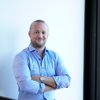
Life Science Sweden heads to the Oresund region! ‒ Hello there Michael Linnell
Life Science Sweden’s The Future of Swedish Danish Life Science and New Updates in Drug Formulation & Bioavailability meetings are coming up soon. We asked Michael Linnell, project manager for Life Science Sweden’s event portfolio, a few short questions.
-

Study: Semaglutide tablet produces weight loss
The pharmaceutical semaglutide is effective for weight loss even when given in tablet form, according to a phase 3 study.
-

Study: Chat GPT is more empathetic than doctors
The AI tool Chat GPT is not only more accurate when it comes to answering patient questions – the chatbot is also perceived as almost 10 times more empathetic than real doctors, a new study reveals.
-

“An entire industry is about to be wiped out”
According to Jennie Ekbeck, CEO of Umeå Biotech Incubators, Sweden risks not having any small diagnostic companies left in five years.
-

Editorial: ”AI that both impresses and frightens”
”In the past, I've rarely been particularly impressed by something that was produced by AI. But this is something completely different”, Samuel Lagercrantz writes in an editorial.
-

Hello Jenni Nordborg!
Life Science Sweden would like to know more about Jenni Nordborg and asks her about her new job, why she became a chemical engineer and who her role model is.
-

She creates pharmaceuticals on a 3D printer
The correct dosage for each individual, regardless of whether the pharmaceutical is for a seriously ill child or a frail elderly person, is the mission of a well-advanced project with 3D-printed drugs at Uppsala University. “It will soon be available in clinics”, says Christel Bergström, who is heading the project.
-

Neanderthal genes and Nobel Prize in a popular lecture at Bioscience
An inherited gene variant from our ”evolutionary cousins” – the extinct Neanderthals – may affect how our bodies break down certain drugs. “It’s only a matter of time before we actively start screening for it,” said KI researcher Hugo Zeberg when describing the study at Bioscience 2022.
-
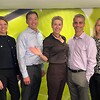
Cytel Inc acquires the SDS Group
The multinational statistical software developer and contract research organization Cytel Inc, headquartered in Massachusetts, USA, acquires the Swedish consulting company SDS Life Science.
-
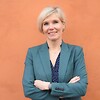
Marie Gårdmark: Potential step change – EU regulators get to play with data
A new pilot from EMA is starting in September to assess wether the analysis of 'raw data' by regulatory authorities improves the evaluation of marketing approval for new medicines. Marie Grådmark writes in a column that she is looking forward to the outcome of the pilot to hopefully then understand if “in house” analyses actually will add value.
-

Study: Our behaviour may have been guided by wishful thinking during the pandemic
A new study suggests that we systematically underestimate health risks if and when it suits us. This was especially true during the pandemic, as our risk assessments may have been guided by wishful thinking rather than a rational perception of the risks.
-
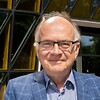
Göran Stiernstedt: “We are the world’s worst at continuity”
Failed investments in primary care, an unreasonable system with online doctors and a public failure at coordinating the healthcare IT system. Göran Stiernstedt does not mind his language when describing the shortcomings of today’s healthcare system. “It makes me extremely frustrated,” he says.
-

Startup-bolaget vill bli nästa Olink
Inte ens ett år gamla har Rarity Bioscience fått anslag från Swelife och Medtech4health. Nu hoppas vd:n Linus Bosaeus att deras teknik för detektion av mutationer i blodprov hos cancerpatienter ska nå laboratorier redan nästa år.
-

Hello Angelica Loskog!
Life Science Sweden would like to know more about Angelica Loskog and interviews her about her life as a researcher.
-

Paolo Macchiarini in court – “The sole intent was to cure”
Paolo Macchiarini’s surgical procedure was illegal, life-threatening and caused severe and prolonged suffering to patients the prosecution claimed when the trial against the Italian surgeon began on Wednesday last week.
-

Björn Ursing: Physicians new role in AI driven healthcare
”AI could be the key we need for tomorrow’s healthcare, but it is not a stand-alone tool”, writes Björn Ursing in a column about how the role for physicians changes in the era of AI.
-

Study: An objective diagnosis of constant tinnitus may be possible
A new method that measures brain activity during sound stimulation can make it possible to objectively diagnose and identify people who suffer from constant tinnitus, which was demonstrated in a study made by researchers at the Karolinska Institute.
-

Pharma Outsourcing igång på Stockholm Waterfront
-
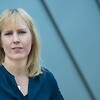
Norrländsk life science går för högtryck
-
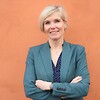
Column: Repurposing as a golden ticket to approval
"Hopefully, in the end, patients will be winners by receiving on-label treatments for which benefit-risk has been properly assessed." In a column Marie Gårdmark, CEO at RegSmart Life Science, reflects on drug repurposing.
-
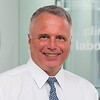
New diagnostic test soon ready for the market
-
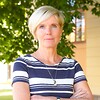
Drug development creates new challenges for regulators